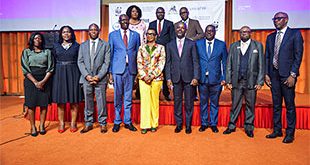
Kampala, Uganda | ISAAC KHISA | African countries are currently having trouble releasing their biotech crops popularly known as Genetically Modified Organisms (GMO) to farmers, but scientists seem to be embracing a new strategy to ensure that there exist relevant regulatory systems.
On July 18, the biosafety agencies and partners across the continent gathered in Entebbe, Uganda, for the second biennial Agricultural Biotechnology and Biosafety Communication (ABBC) symposium themed ‘strengthening communication for improved biosafety management’ to interrogate innovative communication techniques that can address the gap. This they belivee will help in building confidence in the biosafety systems and the safe and beneficial use of agri-biotechnology.
Margaret Karembu, the director of the Africa office of the International Service for the Acquisition of Agri biotech Applications (ISAAA) and the principal coordinator, ABBC, said the three-day symposium offered an opportunity for agencies across the continent to share experiences and best practices on biosafety communication.
“Biosafety communication is an often neglected aspect of the risk analysis and decision making processes for biotech crops which requires urgent investment and development,” she said.
“This is especially critical in Africa where various products are under development and promising to provide staple crops that are resistant to diseases and pests, more nutritious, and survive and increasingly challenging climatic conditions.”
She said several African countries have recently made various important biosafety decisions related to biotech crops including decisions to authorize their general environmental release.
But the ultimate success of delivering these products to farmers is threatened by tenuous support of these decisions from policy makers and the public due to limited understanding of biosafety concepts and the regulatory processes.
Ugandan GMO bill in parliament
This comes at the time the Ugandan government says it is determined to ensure that the Biotech Bill is passed into law to facilitate safe development and application of biotechnology in the country.
The National Biotechnology and Biosafety Bill, 2012, is now before parliament for debate amidst protest from the opponents of the technology fearing for the unknown.
The opponents have argued that biotech crops may force farmers buy seeds every season and also have a negative effect on human health, the claims scientists have refuted.
Dr. Elioda Tumwesigye, the minister for Science and Technology, said Uganda has taken long to pass the biotech bill because of limited knowledge among the population including a section of the legislators and the misconceptions about the technology.
He, however, hopes that the country will soon have a law that will be embraced with the majority population.
“There are many amendments that have come up and do believe that these amendments will help us come up with a law that is acceptable by majority Ugandans,” he said.
“I must say that, should there be need to include even more clauses, then, we shall not get tired. We shall go back, repackage it and within few months, we shall still table it again in parliament.”
 The Independent Uganda: You get the Truth we Pay the Price
The Independent Uganda: You get the Truth we Pay the Price


